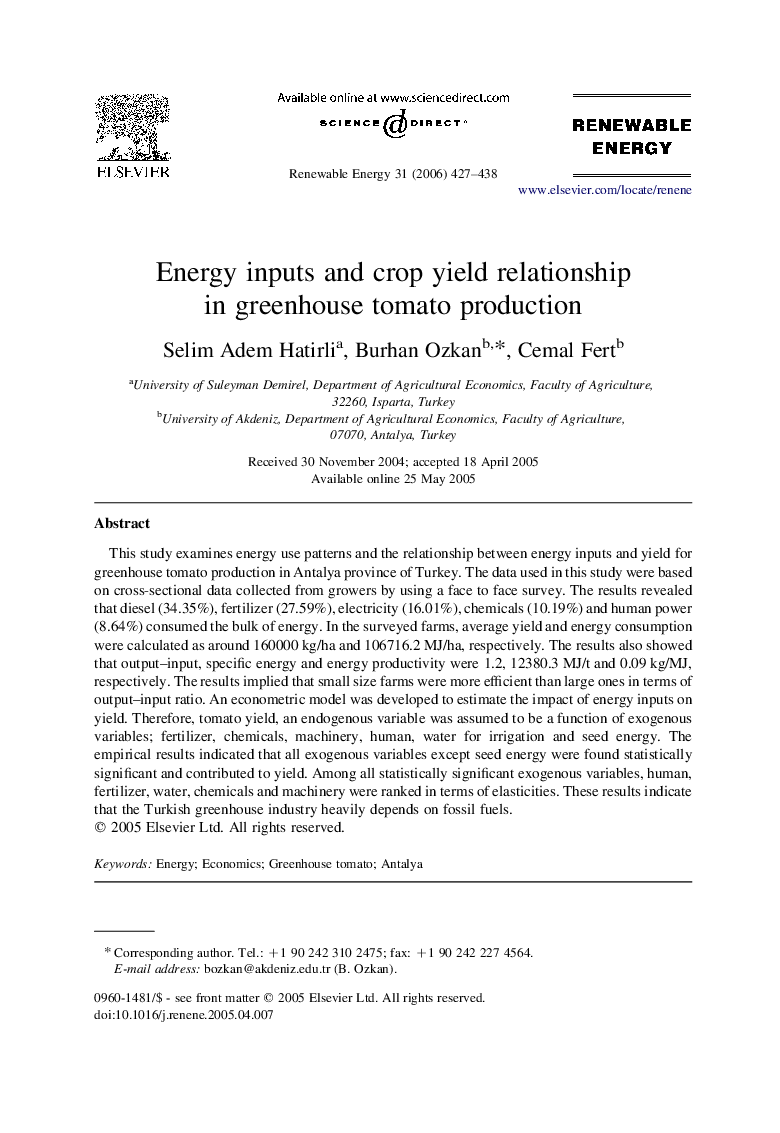| کد مقاله | کد نشریه | سال انتشار | مقاله انگلیسی | نسخه تمام متن |
|---|---|---|---|---|
| 303067 | 512575 | 2006 | 12 صفحه PDF | دانلود رایگان |

This study examines energy use patterns and the relationship between energy inputs and yield for greenhouse tomato production in Antalya province of Turkey. The data used in this study were based on cross-sectional data collected from growers by using a face to face survey. The results revealed that diesel (34.35%), fertilizer (27.59%), electricity (16.01%), chemicals (10.19%) and human power (8.64%) consumed the bulk of energy. In the surveyed farms, average yield and energy consumption were calculated as around 160000 kg/ha and 106716.2 MJ/ha, respectively. The results also showed that output–input, specific energy and energy productivity were 1.2, 12380.3 MJ/t and 0.09 kg/MJ, respectively. The results implied that small size farms were more efficient than large ones in terms of output–input ratio. An econometric model was developed to estimate the impact of energy inputs on yield. Therefore, tomato yield, an endogenous variable was assumed to be a function of exogenous variables; fertilizer, chemicals, machinery, human, water for irrigation and seed energy. The empirical results indicated that all exogenous variables except seed energy were found statistically significant and contributed to yield. Among all statistically significant exogenous variables, human, fertilizer, water, chemicals and machinery were ranked in terms of elasticities. These results indicate that the Turkish greenhouse industry heavily depends on fossil fuels.
Journal: Renewable Energy - Volume 31, Issue 4, April 2006, Pages 427–438